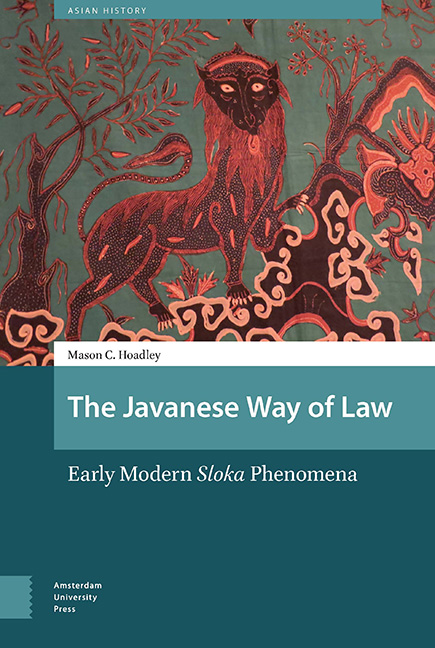Section III - Character, Apparent Demise, and Context
Published online by Cambridge University Press: 20 November 2020
Summary
Based on an assessment of available sources, Section II has reconstructed the major components of the Independent Kingdoms legal texts. Termed in this work the sloka phenomena, they not only dominate the contents of traditional Javanese written law but also provide a guide to deciphering them. Despite what on the surface appears to be a jumble of hopelessly disorganized and incompatible textual materials, guided by the sloka phenomena further study reveals a matrix of interrelated and consistent elements.
Section III opens with an attempt to summarize the nature of traditional Javanese law based on consideration of the sloka phenomena. The uniqueness of the phenomena to the Independent Kingdoms era helps to differentiate it from the preceding period usually termed Old Java. From there discussion turns to a chronology of the dismissal of traditional Javanese written law by the Netherlands East Indies government. This was in preference for either rule according to Dutch Indies law or an adatrecht which would be given its form and contents by C. van Vollenhoven and his disciples in the early twentieth century. That this was apparent is attested to by the continued popularity of traditional texts as attested to by their being re-copied, edited, and most likely revised by generations of Central Javanese scribes. More intriguing indications of the longevity comes from the apparent revival of many of the sloka phenomena among younger Indonesians and even some Islamic scholars in their quest for a public morality seen as lacking in today's Indonesia.
- Type
- Chapter
- Information
- Javanese Way of LawEarly Modern Sloka Phenomena, pp. 167 - 168Publisher: Amsterdam University PressPrint publication year: 2019

